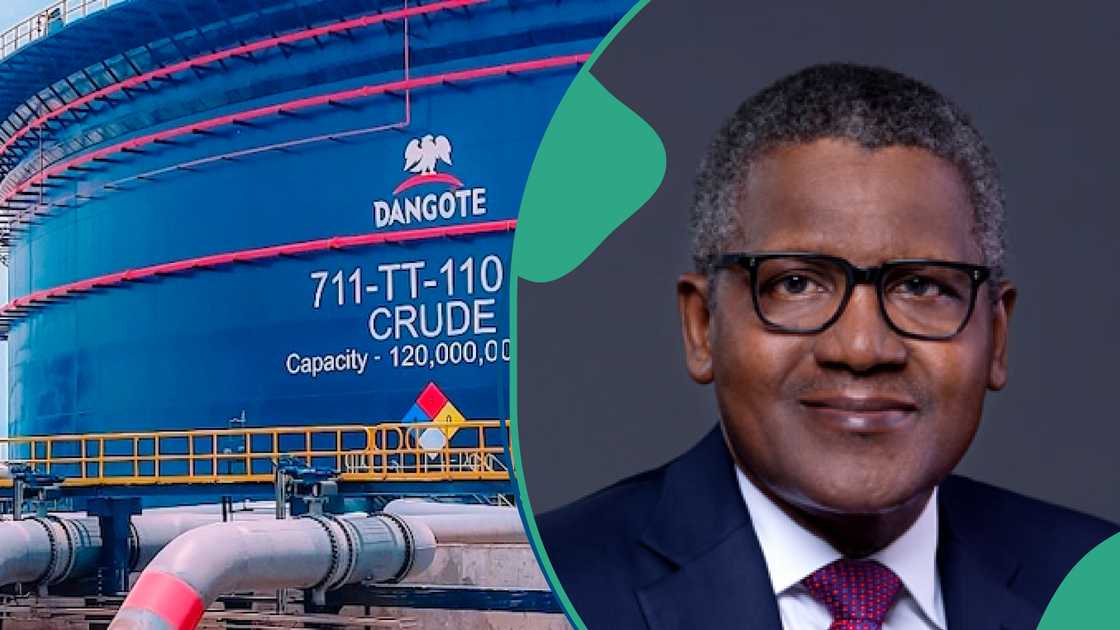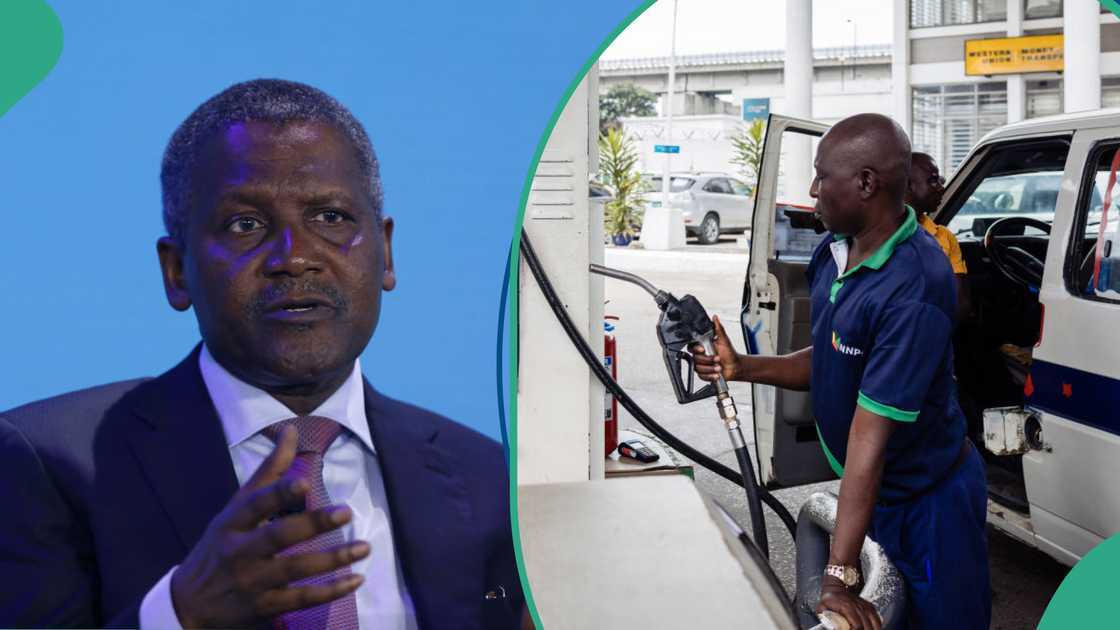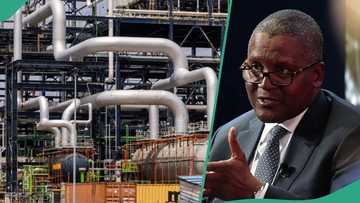UK Investigators Clear Dangote Refinery of ‘Dirty Fuel’ Allegations
- A UK-based energy watchdog, Impact Investigations Platform (IIP), has cleared Dangote Refinery of importing inferior fuel into Nigeria
- The group said that after investigations, the allegations were proven technically inaccurate, commercially implausible, among other
- The report said Dangote’s documentation fully complied with the NUPRC and Nigeria Customs Service standards
Pascal Oparada, a reporter for Legit.ng, has over ten years of experience covering technology, energy, stocks, investment, and the economy.
A United Kingdom-based energy watchdog, Impact Investigators Platform (IIP), has dismissed recent media claims that the Dangote Petroleum Refinery imported substandard petrol into Nigeria.
The organisation described the allegations as “technically inaccurate, commercially implausible, and unsupported by verifiable evidence.”

Source: UGC
Investigation finds no dirty fuel
In a detailed report signed by its lead investigator, Raymond Neil, and released on Friday, the IIP confirmed that its independent review of shipping manifests, customs declarations, and refinery process documentation found no indication that Dangote Refinery imported or sold finished petrol exceeding Nigeria’s sulphur limit of 50 parts per million (ppm).
The IIP said it launched an independent probe following viral reports alleging that a vessel delivered high-sulphur petrol to the refinery disguised as locally produced fuel.
However, Neil clarified that the shipment in question was not a finished fuel product but an intermediate feedstock — a common raw material used globally by refineries to optimise production.
“Our analysis confirms that the shipment being referenced was a blending component, not a finished petrol product,” Neil stated.
“It was imported strictly for refinery processing and never intended for direct sale to consumers.”
According to Neil, refineries worldwide, in Europe, Asia, and the Middle East, routinely import intermediate streams such as high-sulphur catalytic gasoline or straight-run naphtha to balance their production yields.
“This is normal industry practice,” he emphasised, “and it does not imply that substandard fuel is being sold to the public.”
All imports cleared by the regulators
The IIP report confirmed that all Dangote Refinery import documentation and clearances were consistent with the regulations of both the Nigeria Customs Service (NCS) and the Nigerian Midstream and Downstream Petroleum Regulatory Authority (NMDPRA).
The refinery, which operates under a Free Trade Zone licence, is authorised to import intermediate materials for processing, all of which must undergo refining before entering the domestic market.
Neil further explained that the IIP’s assessment involved verifying laboratory test results, refinery utilisation records, and port inspection certificates in both the UK and Nigeria.
None of the reviewed evidence, he said, supported the claim that Dangote imported petrol ready for public consumption.
“The sulphur levels cited in those reports belong to intermediate-grade gasoline, not finished petrol. To suggest otherwise is to misunderstand refinery operations,” Neil clarified.
Calls for responsible reporting and transparency
Neil warned that misinformation on technical matters could damage public confidence in Nigeria’s biggest industrial project.
“The Dangote Refinery is a strategic national asset,” he said. “Public debate must be guided by facts, not conjecture.”
The IIP also urged Nigerian authorities to establish a rapid-response verification mechanism to counter unverified claims about refinery operations.
Transparency requires both openness and accurate interpretation of data,” Neil noted.
The report further praised the refinery’s strong compliance and audit culture, stating that its internal systems meet the standards of the European Refining Association and the American Petroleum Institute.
“Every product stream leaving the refinery is certified by an ISO-accredited lab,” Neil revealed. “These certificates are regularly submitted to the NMDPRA before any domestic dispatch.”
Verdict: Dangote cleared, refinery fully compliant
Concluding the investigation, the UK-based watchdog reaffirmed that Dangote Refinery did not import dirty fuel and operates within global best practices.

Source: Getty Images
“Our findings show a refinery engaged in legitimate global trade, committed to delivering cleaner fuels that meet international standards,” Neil declared.
“The energy transition demands accuracy, not alarmism.”
Dangote exposes truck drivers' salaries
Legit.ng earlier reported that Africa’s richest man, Aliko Dangote, disclosed that truck drivers in his refinery earn more than many graduates in Nigeria.
Speaking at a press conference on Monday, September 15, 2025, he disclosed that the salaries range between N210,000 and N280,000 per month, which is three to four times Nigeria’s new minimum wage of N70,000.
He added that drivers with five years of accident-free records could also qualify for housing loans, making the role even more attractive.
Proofreading by Funmilayo Aremu, copy editor at Legit.ng.
Source: Legit.ng






